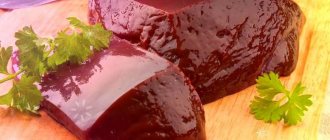Mother's milk is the most useful nutritional liquid for a little person. And it is perhaps difficult to argue with this statement.
Read more about the composition and properties of breast milk in the article Composition of breast milk or Everything you wanted to know about the value of breast milk
However, unfortunately, sometimes situations arise when you are faced with a dilemma: to breastfeed your baby or is it better to abstain from it if you are sick, and there is also a need to take medications. And then it may happen that you unreasonably refuse to breastfeed your baby. Because you don't want to harm the baby. While mother's milk, on the contrary, is necessary for the child, because it protects him from possible infection by viruses or bacteria, and also improves the functioning of the immune system.
Therefore, let's look at situations in which you should refrain from breastfeeding (BF) or continue it, taking some precautions.
A nursing mother has a cold - is it possible to continue breastfeeding?
Runny nose, cough, increased body temperature - such symptoms will not please anyone, but their appearance causes particular concern in a nursing mother. In this case, the woman finds herself in a difficult position: she is afraid of infecting the baby with “sick” milk, but at the same time, lactation does not allow her to take most medications for colds. What to do? Wean your baby from the breast and be cured faster with potent drugs or fight a cold with traditional methods, but not interrupt breastfeeding? Look for answers to these questions in our article.
Treatment
Treatment of a common cold in a nursing woman is carried out under the supervision of a medical specialist, since a nursing mother is responsible not only for her own health, but also for the health of the child’s body. The use of antiviral drugs is advisable as a preventive measure, as well as in the first hours after the onset of cold symptoms.
Such a popular drug Immunal can cause allergic reactions in a newborn baby, so you should refrain from taking it. Treatment of nursing women is carried out according to the following plan:
- To prevent and treat manifestations of viral infection, the drug Grippferon is used. This remedy is instilled 2-3 drops into each nasal passage 2-3 times a day. The active component of the drug is interferon;
- If a bacterial infection is added during the course of a viral disease, the young mother will need a course of antibacterial therapy. If the prescribed antibiotic is incompatible with natural feeding, then the woman will be recommended to pump and temporarily transfer the baby to artificial milk formula;
- During the treatment period, the amount of fluid you drink is important. The recommended volume is at least 2 liters per day. Warm herbal tea with raspberry or blackcurrant jam is beneficial;
- If, against the background of a cold, a nursing mother’s body temperature has increased, then antipyretics such as Paracetamol and Ibuprofen are used to reduce it. These medications are safe for both mother and baby;
- Treatment of cough in nursing mothers is carried out using mucolytic and expectorant drugs. The list of approved drugs includes Lazolvan and Ambroxol. It is strictly forbidden to use antitussives based on bromhexine.
To treat colds and bronchitis, it is permissible to use such remedies as Bronchicum, Tussamag, Doctor Mom. If a nursing mother suffers from nasal congestion, then vasoconstrictor drops and sprays (Galazoln, Naphthyzin, Xylometazoline) will help relieve swelling of the mucous membrane.
The duration of use of these products should not exceed 5 days in a row, as they tend to be addictive. To relieve swelling of the mucous membrane of the nasopharynx and sanitize the upper respiratory tract, nasal rinsing is performed. A 0.9% solution of sodium chloride (table salt) is suitable for this purpose.
If a nursing woman experiences a sore throat, she can use Lugol's solution to lubricate the walls of the pharynx and tonsils. Medicines such as Strepsils, Chlorhexidine, Sebidine, Iodinol have a powerful antiseptic effect. Before using each product, consultation with a doctor is required.
Should I stop breastfeeding if I have a cold?
A young mother has caught a cold, and relatives unanimously declare that breastfeeding should be stopped until the woman has fully recovered. But not every mother immediately follows this advice; her intuition tells her: she should not interrupt feeding.
An abrupt cessation of lactation can cause certain difficulties:
- A new diet can cause colic, indigestion, and allergies in a child;
- Even if the baby takes the formula, problems may arise with the resumption of lactation. It is much easier to drink from a bottle; there is a chance that the baby will not take the breast;
- If breastfeeding is interrupted, a woman will be forced to constantly pump, and if she just skips the next procedure, a mother with a cold may face lactostasis, milk stagnation or mastitis;
- Even after a few days without breastfeeding, a mother’s milk may disappear, but everyone knows the benefits of breastfeeding.
These are not all the difficulties that cessation of lactation can cause, which is why even mothers who have a cold are in no hurry to do it. In addition, modern pediatricians have proven that feeding during a cold is completely safe.
Why is breastfeeding during a cold considered safe?
Many people forget that the viruses that the mother transmits to the baby through milk begin to enter the child’s body much earlier than the woman suspects the disease. From the day the virus enters a woman’s body, up to three days pass until the first symptoms of a cold. When the mother discovers that she has a runny nose and a fever, the baby will already have time to get pathogens from the milk. In this case, does it make sense to stop breastfeeding? Of course not!
For many, it will be a revelation that contaminated mother’s milk is even beneficial for the baby. How to explain this? Like any person with a cold, the body of a young mother begins to produce antibodies from the first day of the disease. They suppress the development of the virus, but at the same time enter all organs and tissues, including breast milk. With mother's milk, the baby receives fragments of this virus, already partially neutralized, as well as antibodies. In response, the small organism begins to actively produce its own antibodies. As a result, mother’s milk during a cold will only strengthen the immune defense of the child’s body and provide a kind of “training” for it.
It is important!
By depriving the baby of breast milk during a cold, the mother simultaneously deprives him of valuable antibodies that enter his body with breast milk. And if during this period you replace breast milk with formula, the child has every chance of becoming infected. And in this case, he will have to fight the disease on his own!
Will breast milk spoil if you have a cold?
Pediatricians have refuted the outdated opinion that during a cold, a nursing mother's milk can spoil.
Remember!
During a mother’s illness, nothing will happen to the milk, it will not turn sour and will not become harmful to the child, if the girl does not take drugs prohibited during lactation.
You can and should feed your baby in the usual way; there is no need to pump, much less boil milk. Heat treatment is powerless against most viruses, but it kills all the beneficial substances that mother’s milk is so rich in. Breast milk can become truly dangerous for a baby when the mother self-medicates; only a doctor can decide whether the medicine is safe during lactation.
Rules for breastfeeding during illness
It is breastfeeding that provides babies with protection and helps our little ones avoid trouble. Many nursing mothers note that during their illness the baby remains absolutely healthy. When a child receives developed immunoglobulins through mother’s milk, he becomes resistant to the attacks of insidious viruses and does not react to them in any way.
Try not to interrupt breastfeeding during ARVI. After all, this will not only deprive the baby of valuable proteins and immunity from the mother, but will also cause stress on the new diet. Don't forget that viruses entered your body much earlier than you felt sick. And the child was already drinking milk with antibodies against viruses appearing in it. This served as a preventive measure for him.
You should also not express milk while breastfeeding. Moreover, there is no need to boil this milk, as some mothers do. It is worth stopping breastfeeding temporarily if the mother has been prescribed medications that are dangerous to the baby. And this happens extremely rarely, since doctors always try to find an alternative treatment that is absolutely safe when feeding.
When interacting with the child (including when feeding), the mother should use a mask. Change your clothes and wash them more often than usual to prevent viruses from getting on your child’s mucous membranes. Constantly ventilate the apartment, but avoid drafts. Monitor the humidity in the room. Too dry air causes the baby's nasal mucosa to dry out, and this increases the risk of viruses.
How to treat a cold for a nursing mother?
The only disadvantage of continuous feeding during a cold is that the mother cannot take most antiviral drugs, as they can harm the baby if they enter his body through breast milk. But there is no need to worry about this; today the pharmaceutical market offers many gentle cold medicines for nursing mothers.
Drug treatment
To reduce high body temperature, a nursing mother can take Paracetamol; it is considered safe for both mother and baby. In exceptional cases, it is allowed to drink any antipyretic drug once, but it is worth expressing milk in advance for several feedings.
Symptomatic medications will help to overcome a cough and runny nose; most often they are prescribed by doctors. It is very important to wear a medical mask when you have a cold, since the likelihood of an infant becoming infected through airborne droplets is much higher than through breast milk.
Helpful advice:
If a mother has a cold, then she should wet clean the child’s room more often, wash her hands, and also remember to ventilate the room.
Traditional methods
If the disease is not so severe and it is possible to refuse medications, then you can be treated with folk remedies:
- Herbal tea or decoction.
- Aromatherapy.
- Inhalations, including over potatoes.
- Foot baths.
- Raspberry jam.
- Milk with honey and lemon, etc.
What to do if mom gets sick:
So, a cold in a nursing mother is not a reason to give up breastfeeding. In addition to traditional treatment, you should not forget to drink plenty of fluids. This will not only support lactation, but also prevent drying out of the mucous membranes of the nasal cavity and throat, causing increased sweating and phlegm removal.
Let's look at what to do and how to treat it if a nursing mother gets sick:
Myths and legends
There are several misconceptions about breastfeeding during illness, let's look at the most common:
- The child will become infected through milk. This is an incorrect statement. We all know that colds and flu are transmitted through airborne droplets from coughing, sneezing, etc. A less common route of transmission is through household contact, in which infection occurs through contaminated household items (dishes, door handles, switches) and handshakes. Yes, there are diseases in which the virus can be transmitted to a child through breast milk (HIV, Ebola, etc.), but with colds, only virus particles that are neutralized by the mother’s immune system are found in the milk.
- At high body temperatures, milk “burns out” and becomes unsuitable for consumption. This is also fiction. According to medical research, body temperature does not affect the quality of breast milk.
- Medicines that the mother takes pass into the milk and can harm the baby. This is absolutely true, but there is no need to be scared and refuse treatment. There are many medications that can be combined with breastfeeding. You just need to consult your doctor before use.
In the treatment of colds, you can use “folk methods” that alleviate the condition and are safe for the child.
If a nursing mother gets sick, should she feed or not?
When a woman breastfeeds her baby, this is her special state. She especially needs to take care of her health and nutritious nutrition so that lactation is stable and the breastfeeding baby is happy with life. But, after childbirth, a woman’s body is still quite sensitive to the effects of external factors and microbes with viruses, especially at the beginning of the cold season and in the off-season. Of course, during the period of breastfeeding, the mother needs to take special care of herself and adequately prevent infections and exacerbations of chronic diseases, but if the disease does appear, the question immediately arises - what to do, how to be treated and is it possible to breastfeed?
Colds while breastfeeding: what should mom do?
It’s rare that anyone goes through autumn and spring without catching a cold. But if you are a nursing mother and now have a baby nearby, then catching a cold while breastfeeding becomes a real test for the family.
Grandmothers demand that they immediately stop breastfeeding so that viruses do not pass through the milk to the baby. Some doctors may also recommend switching the child to formula.
How to behave correctly during ARVI and colds? How to treat? We'll talk about this today.
Is it possible to breastfeed with a runny nose? All about breastfeeding
During lactation, a woman must carefully monitor her health. “Is it possible to feed if the runny nose is strong enough? — young mothers often ask specialists, hoping to hear truly competent advice and valuable recommendations.
When asked whether it is possible to feed with a runny nose, doctors answer positively. Discharge from the nose of a nursing mother and even her poor health, increased body temperature are not contraindications for lactation.
If a woman has a cold, she not only can, but also needs to feed her baby. Together with breast milk, it transfers antibodies to the baby that can resist various types of infections. It has been established that children who are breastfed get sick much less often than those who are fed industrially produced formulas. Even when such babies move to the “common table” and are weaned, they retain strong immunity.
During their illness, some mothers prefer to express milk and boil it, and then offer it to the baby. Doctors believe that such manipulations are completely useless and even harmful. Indeed, during the boiling process, many antibodies, as well as vitamins and other valuable components of mother’s milk are destroyed. If a woman does not take any medications, she can safely offer her breast to her baby during a cold. Sometimes young mothers are forced to take medications to reduce their temperature. In this situation, you need to consult a specialist and ask how compatible a particular drug is with breastfeeding. Perhaps the doctor will suggest an alternative treatment method.
While taking medications that are incompatible with lactation, you should not breastfeed your baby. For a certain period of time, a woman needs to express milk and pour it out. Feeding can be resumed later, but before that the baby should be offered formula.
Some experts do not advise young mothers to breastfeed their babies when their body temperature rises to 39.5 degrees Celsius or higher. This condition poses a serious danger, since milk tends to curdle.
It is simply necessary to treat a runny nose for a woman during active lactation. If the disease is neglected, over time it can cause complications and become more severe. There are many drugs that are approved for use by nursing mothers. The most common of them are special saline solutions. They need to be used to regularly irrigate the nasal cavity. Do not forget about traditional methods of treatment. Inhalations and warming help very well for a runny nose. If a woman has a tendency to develop sinusitis, she needs to be especially careful. To prevent this unpleasant disease, use hot dry salt, which must be placed in bags and applied to the sinuses.
If your baby also has a runny nose, you should show him to your pediatrician. At the pharmacy you can purchase special drops intended for children in the first months of life. To avoid such problems, it is recommended to dress warmly and try not to contact a large number of people during epidemics. Treatment of a runny nose should begin as soon as the first symptoms of this unpleasant illness appear.
If a nursing mother has a cold, she should wear a mask. This measure will help protect the baby if it is a viral disease. Contrary to popular belief, the disease cannot be transmitted to the baby through breast milk due to the large number of antibodies in the biological fluid.
If a young mother has a runny nose, she can breastfeed her baby without any fear. This recommendation is relevant only in cases where the woman is not taking any medications that are incompatible with breastfeeding.
Treatment during lactation
When treating colds during lactation, you should adhere to the basic rules of therapy at home:
- Bed rest (naturally, as far as life with a small child allows).
This is mandatory, even with the mildest symptoms. During bed rest, it is much easier for the body to fight infections. Therefore, do not forget about help, involve your husband and grandmothers.
A cold releases a lot of toxins into the body. To ease your general condition and remove toxins faster, you should drink a lot of warm drinks.
These can be fruit drinks, teas, compotes. Read the current article What can a nursing mother drink>>>
If the baby does not have allergies, then it is recommended to add raspberries, lemon, and honey to drinks.
In addition to medications, folk recipes that have been proven over the years can also contribute to treatment. Gargling, nasal rinsing, tea with ginger, lemon, raspberry.
- Food according to appetite.
If you don't want to, don't force yourself to eat. A light broth and warm drink is enough. Your diet will not affect your milk supply in any way.
We discuss the issues of varied and tasty nutrition during breastfeeding without harm to the baby in the online course Nutrition for a nursing mother without harm to the baby>>>
Limited approved medications while breastfeeding
What medications can be taken while breastfeeding, but on a limited basis?
Medications that nursing mothers should take with caution include:
- theophylline, aminophylline - long-term use of the drug, for example, for bronchial asthma, is dangerous for the child by developing insomnia, anxiety, irritability, and palpitations;
- diuretics - hypothiazide, oxodoline - can cause a sharp decrease in platelets in a child;
- reserpine can cause drowsiness, swelling of the nasal mucosa, diarrhea, breast refusal;
- contraceptives containing estrogens and progesterone inhibit lactation; in male infants can cause gynecomastia (breast development);
- laxatives - senna preparations, phenolphthalein - can cause intestinal colic and diarrhea in a child;
- Analgin, when taken by the mother for a long time at 1.5 g of the drug per day, can inhibit hematopoietic function and cause allergic reactions;
- aspirin, when taken in large doses by the mother, can cause a hemorrhagic rash and breathing problems in the child;
- Tetracycline antibiotics are dangerous due to various complications: toxic effects on the liver, kidneys, development of fungal infections of the skin and mucous membranes, dysbacteriosis, deposition of the drug in tooth enamel during teething;
- sulfonamides can disrupt bilirubin metabolism in a newborn and cause hemolytic anemia and skin rash.
Protecting your baby when your mother has a cold
ARVI involves airborne infection, so it is worth taking care of additional protection for the baby.
Yes, we remember about antibodies in breast milk, but questions of general hygiene will not be superfluous.
Here are a few important points that need to be observed if a nursing mother has a cold:
- It is important to continue feeding so that the baby’s immunity is strengthened.
- When in contact with the baby, you can use a protective gauze bandage or a special medical mask, which is changed every 2 hours (there is no 100% evidence that this method works effectively, but it is better to play it safe during the acute stage of the disease).
- A huge number of viruses get on your hands (when you close your mouth when coughing or wipe your nose with a handkerchief). Therefore, wash your hands often with soap and dry with a towel specially designated for you.
- Don't kiss your baby or cough in his direction.
How to help your baby grow healthy from the first days of life, how to reduce colds to a minimum, we discuss in the online course Healthy Child: Workshop for Mom>>>
On a note! The first days of the development of a cold are accompanied by weakness and headache. It is good if there are relatives and close people around the nursing mother who help her care for the child.
Baby protection
Colds that occur during breastfeeding raise a lot of questions. When you are sick, it is always scary to infect your baby, so the main question for moms and dads is how to protect the baby from infection? You can create the most reliable protective barrier by using the following recommendations in practice:
- Don't stop feeding. The most important thing you can do to keep your baby safe is to continue breastfeeding. Mother's milk is a strong barrier that protects the baby from harmful bacteria. Breastfeeding strengthens children's immunity, helping to protect themselves from viruses or alleviate the course of the disease.
Even if the mother is sick, breastfeeding should be continued - it is the complex of nutrients contained in milk that can protect the baby from infection
- Use a medical mask. Unfortunately, doctors claim that wearing a mask does not prevent infection of other people - the whole point is that the virus enters the body 2-3 days before its active manifestations (when the first cough and snot appear). If you still use a mask, the concentration of harmful organisms in the air will be significantly lower than without it. Please note that the gauze bandage needs to be changed every two hours.
- Wash your hands thoroughly. The virus is transmitted in two main ways - airborne droplets and touch. The main enemy is snot flowing from the nose. Napkins and handkerchiefs are the main carrier of infection, and there are also a lot of germs on the hands. We recommend regularly washing your hands before contacting your baby - this will protect him from possible infection.
The course of ARVI is such that the critical period with headaches, weakness and fever occurs in the first days of the disease. A sick mother who is breastfeeding her newborn should be treated with extreme caution. A cold during breastfeeding weakens the already low immunity, so a woman is at high risk of developing complications. In advanced forms, chronic diseases may develop. As soon as the mother notices the first signs of a cold, she should immediately consult a doctor.
Medications
Modern pharmaceuticals offer a large list of products that can be used during breastfeeding to treat colds during breastfeeding. They can all be divided into groups according to purpose.
Antiviral
Among the drugs to combat cold viral diseases, there are many that are compatible and incompatible with breastfeeding.
Evidence-based medicine ridicules the effect of antiviral drugs and considers them only to defraud the population of money. Therefore, whether to drink or not to drink them is a personal matter for each of you.
A group of drugs based on recombinant human alpha interferon (Grippferon, Viferon) is safe during breastfeeding.
You can also consider homeopathic remedies that can be used during lactation Aflubin, Anaferon.
Treatment of a runny nose
Medicines that help reduce swelling of the nasal mucosa will help a nursing mother cope more easily with a cold.
Important! Vasoconstrictor drops can be used as a last resort if the nose is severely stuffy. They cannot be used for more than 3 days.
These drugs are not recommended for use by mothers with newborn children.
Nazivin, Otrivin, Vibrocil - this is what they write about them on the website https://www.e-lactancia.org/ “Avoid overdose and do not use for more than 3 days: like any other medicine that causes adrenergic action, when absorbed it can cause side effects (vascular hypertension, irritability, cardiac arrhythmia) in both mother and baby.”
Medicines to relieve sore throat
Rinsing the cavity with solutions of Chlorophyllipt, sea salt, and Hexoral will help reduce pain in the throat.
Throat sprays Hexoral and Tantum-Verde also have a local effect. Lozenges, such as Strepsils, will help temporarily reduce pain.
Cough treatment
If you have a cough, you should definitely consult a doctor to rule out bronchitis and other lung diseases.
It is allowed to take medications whose active ingredient is ambroxol. Read more in the article How to treat cough while breastfeeding>>>
How to check the compatibility of prescribed medications with breastfeeding?
Very often I come across the fact that the doctor prescribes medicine for the mother, but the instructions say that it is not allowed while breastfeeding. The mother either stops feeding the baby or does not undergo the necessary treatment.
Let's remember that there are now many medications that are compatible with breastfeeding. Many manufacturers do NOT conduct large-scale research on breastfeeding women and the compatibility of the drug with breastfeeding; it is easier for them to write in the instructions - it is prohibited.
In this case, always check each appointment yourself on the website https://www.e-lactancia.org/
In the search bar you need to enter the active substance (not the trade name of the drug!) in English and you will get the most complete opinion about the drug and breastfeeding.
Watch my video for more details:
What should mom do to get rid of the disease?
What to do if you are breastfeeding, but want to get rid of rhinitis:
- Manifestations of allergic rhinitis are eliminated by the absence of the allergen and antihistamines. But not with the usual Suprastin and Tavegil, but with special means such as: Nazoval and Nazonex. These drugs only relieve symptoms and do not cure, but they are suitable for nursing mothers. Antihistamines Azelastine and Allergodil are also recommended during lactation.
- Respiratory diseases are treated comprehensively. But if you need to relieve congestion, you can rinse your nose with products based on sea water or saline (Aqualor, Aquamaris, Dolphin). Saline solution for rinsing can be prepared at home. For one liter of boiled water there is one teaspoon of salt.
- Rinsing is carried out using a special teapot or syringe. This procedure should be done 4-6 times a day. But do not overuse rinsing. Despite all their effectiveness, a small part of the saline solution can get into the milk.
- Vasoconstrictor drops such as Naphthyzin, Nazivin, Tizin should be used extremely carefully and for no more than 3-5 days (they are known to be addictive, and are not entirely suitable for lactation). Their use is justified in serious cases when “nothing helps.”
- When using drugs based on oxymetazoline (Nazivin, Nazol), you should not exceed the indicated dosage; the risk of side effects is very high. Fluticasone, Flixonase, and Nasonex are considered fully compatible with breastfeeding.
- Alternative drops are products based on vegetable oils that fight germs well. For example, Pinosol. If there is no allergy to its components (mint, eucalyptus, pine oils), then it can be used by a nursing mother.
Folk recipes
Use of traditional medicine methods:
- Inhalations of garlic and onions are good for “piercing” the nose, however, they may well “dry out” the nasal mucosa.
“Zvedochka” gives a good effect, but it contains a lot of different and quite allergenic components. - A freshly prepared solution of aloe juice (1 part plant juice and 5 parts water) should be used only on the first day of its preparation. It has a limited shelf life. The same applies to products based on Kalanchoe.
- You can also use infusions and decoctions of medicinal herbs, especially chamomile, thyme, coltsfoot. 1 teaspoon of dry herb is poured into a glass of boiling water and infused.
- The most common mustard also copes well with a runny nose, especially at the very beginning of the disease. Dilute a few tablespoons of powder in warm (or preferably hot) water and make a foot bath before bed.
- Warm up your cold feet for a few minutes, put on warm socks and go to bed. Warming the nose may provide some relief. Place a warm bag of salt on your sinuses and hold for a while.
The mildest forms of rhinitis may even go away without treatment . But if a runny nose does not go away after 5 days, then this is a reason to consult a doctor. The specialist will adjust the methods of combating the disease, while taking into account the fact that it is necessary to continue lactation.
Folk recipes
Among the folk recipes there are many proven remedies that will tell you the answer to the question of how to treat a cold during lactation:
- Foot baths, after which you should put on warm, or better yet, woolen socks.
- Adequate sleep and rest. If you have help from relatives, then be sure to get enough sleep. This will speed up the healing process.
- The most basic folk remedy is to drink plenty of water: fruit drinks and compotes made from cranberries, raspberries, black currants, teas with lemon and honey.
Possible complications
Often, complications of a cold in the form of bronchitis, sinusitis, and pneumonia require serious treatment, which must be carried out under the supervision of a physician.
Ask to prescribe medications that are compatible with breastfeeding and immediately ask for several names of drugs so that you can check for compatibility yourself and choose the one that does not require temporary weaning of the child from the breast.
In conclusion, it should be noted that the information presented above is not a guide to action, but the main points that will help you continue breastfeeding and undergo treatment for a speedy recovery.
What medications can you take while breastfeeding?
Unfortunately, some diseases cannot be cured only with folk remedies, and taking medications becomes vital. Purulent mastitis, an attack of bronchial asthma, hypertensive crisis, cardiac arrhythmia, postpartum depression, allergic reactions - this is not a complete list of diseases that do not take into account the mother’s desire to breastfeed her baby.
Thanks to clinical pharmacology, medicine knows medications that can be taken while breastfeeding without fear for the baby’s health, but only after consulting a doctor!
Medicines approved for breastfeeding include:
- a large group of penicillin antibiotics, cephalosporins, aminoglycosides, erythromycin, lincomycin, oleandomycin;
- Salbutamol, Ventolin, Orciprenaline, Berotec are suitable for relieving an attack of bronchial asthma;
- cardiac glycosides - strophanthin, digoxin;
- antihistamines - tavegil, diphenhydramine in the usual dose;
- laxatives - bisacodyl, castor oil, magnesium sulfate orally;
- to reduce arterial hypertension - anaprilin, obzidan, aminazine.
Knowing which medications can be taken while breastfeeding and which should be strictly excluded, you can protect your baby from negative consequences. The health of an infant directly depends on the health of the mother. Remember this, and let your baby grow up cheerful and strong!
If a nursing mother gets sick...
It is difficult to answer this question unequivocally. It is necessary to understand the rules of behavior in case of a specific illness, because in one case feeding will not harm the baby, but in another it can be dangerous. Therefore, let's step by step understand all the nuances of this topic.
First of all, you need to clearly understand that your actions should be guided by the scientific recommendations of the WHO, and not by the opinions of neighbors, girlfriends and even relatives. At the present stage, WHO strongly recommends maintaining breastfeeding by all available methods, and not all maternal diseases serve as a reason for refusing lactation.
But what can we hear from the outside - numerous advice about refusing to feed if the mother has the slightest cold, about boiling breast milk so that bacteria are not transmitted, or even about completely stopping contact with the baby during the illness.
Of course, it’s hard not to get confused with so many different directions of advice. But still, you should be based on the professional recommendations of doctors, which are scientifically substantiated and confirmed by dozens of practical studies.
Should I continue feeding or not?
In fact, a categorical refusal to breastfeed is recommended only for certain diseases - severe forms of liver disease, kidney disease, mental disorders, heart failure, use of medications with a high degree of toxicity.
Everyone knows that before symptoms of colds appear, we can be a carrier of the virus for several days. Therefore, from the moment the mother becomes infected, when she does not yet feel the disease and is calmly breastfeeding the baby, the baby also receives painful pathogens with milk. Thus, in most cases, by the time your illness becomes more pronounced, that is, when a runny nose, fever or cough appears, the baby is already actively immunized.
Then does it make sense to stop breastfeeding?
No. After all, in this way you deprive the baby of such necessary immune protection, and he is forced to cope with the disease alone. By continuing to breastfeed, you help your baby cope with the virus, and he may not get sick at all.
Will boiling milk help? Alas, no, by boiling milk, you destroy all the protective properties of this precious product and deprive the baby of immune support.
A sudden transition to artificial feeding is also extremely undesirable. The only sure way out is to continue breastfeeding, then even if you get sick, your baby will easily tolerate this disease and recover in a matter of days.
Various diseases and rules of behavior
But all of the above does not mean at all that if you have a cold (not to mention more serious illnesses), you should self-medicate and breastfeed your baby without fear. If you have any ailments, be sure to consult a doctor who can prescribe medications that you need and that will not harm your baby.
Let's discuss in detail what you can do for the most common diseases:
For viral diseases, symptoms are treated. This treatment allows continued breastfeeding, provided that the medications used are prescribed and approved by a doctor. Elevated temperature is also not dangerous, it only indicates the body’s fight against the virus. Temperature-lowering medications should be taken at a level of 38°C and above. Paracetamol is ideal for nursing mothers; doctors also recommend the modern drug ibuprofen, which relieves pain and fever. Aspirin and strong cold medications (Fervex, Cold Flu, Coldrex, etc.) are not recommended during lactation.
It is better to take medications immediately after feeding, so that the level of medications in the blood will decrease before the next feeding.
Do not worry about the quality of milk during illness, it remains suitable for feeding and does not turn sour. Also, you should not avoid contact with the baby; feel free to continue caring for him, because if the causative agent of the disease reaches the baby through milk, then your isolation will not bring any benefit , but will only bother the baby.
Bacteriological diseases. They are initiated by pathogenic microorganisms and are treated with antibacterial drugs. Such diseases include pneumonia, sore throat, mastitis, etc.
But even with these forms of the disease, giving up breastfeeding is not necessary. Modern pharmacology produces antibiotics that are completely compatible with lactation. These include penicillin drugs, most cephalosporin drugs and macrolides. such as chloramphenicol, tetracycline, fluoroquinolones and other medications that affect bone growth and hematopoiesis is definitely prohibited In any case, now there are a lot of options from which your attending physician will, if possible, select medications that will allow you to continue breastfeeding. When taking any antibiotics or other drugs, be sure to take care of maintaining healthy microflora in both the baby and the mother.
Be sure to ask your doctor about combining lactation and medications prescribed to you. You can also independently verify the safety of the medications you are taking by reading the information in medical reference books or the leaflet for the drug.
In urgent cases, tell your doctor immediately that you are breastfeeding. During “light” operations, resumption of lactation is possible soon after the mother comes out of anesthesia. With local anesthesia (for example, during dental treatment), you can continue to breastfeed.
Regarding common herbal treatments: not all herbs are safe for your baby, so be sure to consult your doctor before using any decoctions or tinctures.
Is it possible to breastfeed a child if the mother is sick?
Breastfeeding during maternal illnesses such as acute respiratory infection, sore throat or influenza can be continued subject to certain rules:
- mandatory wearing of a mask made of 4 layers of gauze, which must be changed every 2 hours with a fresh one, washed and ironed on both sides;
- It is better to have disposable handkerchiefs and throw them away immediately after use;
- frequently and thoroughly wash your hands and clean your breasts before feeding;
- it is advisable to minimize communication between the sick mother and the child by entrusting the care of the baby to another person;
- when breastfeeding during illness, you need to ventilate the room more often, carry out wet cleaning twice a day, quartz the air in the room if you have a portable quartz lamp;
- To increase the child’s immunity during this period, you can instill 2 drops of interferon into his nose in both nasal passages every 4-5 hours.
Is it possible to feed a child if the mother is suffering from any acute gastrointestinal disease of an infectious or non-infectious nature? Breastfeeding for such diseases can be continued, since these diseases are not transmitted through milk, but require strict adherence to the sanitary and hygienic regime.
Washing your hands thoroughly with warm water and soap, rinsing them with an antiseptic, and treating your breasts before feeding should become an indispensable condition for caring for your child.
Spoons, pacifiers, cups, and baby toys must be boiled. Door handles, water taps, sinks, and toilets should be wiped with a 0.5% bleach solution twice a day. Cleaning should be completed by washing the floor with a disinfectant (calcium hypochloride, chloramine, “Sanitary”, etc.).
Is it possible to breastfeed if the mother is suffering from one of the severe infectious diseases (diphtheria, meningococcal infection, hemorrhagic fever)? Such diseases require immediate isolation of the sick mother in a hospital and, consequently, cessation of breastfeeding.
If the condition allows the mother to express milk, then after sterilization it can be used to feed the child.











